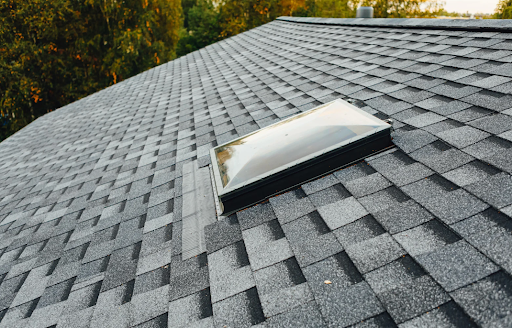What Are the Different Types of Roof Tiles?

Choosing the right roof tile is about more than just curb appeal. It’s about selecting a material that offers the right balance of performance, durability, and long-term value for your home. Especially here in Florida, where homes face intense sun, heavy rainfall, high humidity, and the ever-present threat of hurricanes, your roofing choice matters more than ever.
So, what are the different types of roof tiles? The five most common and reliable roof tile types are clay, concrete, slate, metal, and synthetic. Each of these tile roofing materials offers distinct advantages: clay is prized for its timeless look and heat resistance; concrete delivers affordability and versatility; slate offers unmatched longevity and luxury appeal; metal provides lightweight durability and wind resistance; and synthetic tiles bring innovation, ease of installation, and eco-friendliness to the table.
Understanding what roof tiles are made of and how each type performs in Florida’s climate can help you avoid costly repairs down the road and invest in a roofing system built to last. In this guide, we’ll explore each option in detail, highlighting their features, benefits, and ideal applications, to help you make a confident and informed decision for your home.
1. Clay Roof Tiles
Clay tiles are among the oldest and most trusted roofing materials. Molded from natural clay and fired at high temperatures, these tiles are known for their classic terra cotta look and long lifespan.
Why Homeowners Like Them:
- Timeless style, especially for Mediterranean and Spanish-style homes
- Resistant to wind, insects, and harsh sunlight
Things to Consider: Clay tiles are heavy and brittle, so your roof structure must be strong enough to support them. They’re also one of the more expensive tile options up front, but their durability makes up for the investment over time.
Best For: Homeowners who value traditional elegance, long-term durability, and live in high-heat areas like Southwest Florida.
2. Concrete Roof Tiles
Concrete Roof Tiles are made from a mixture of cement, sand, and water. Concrete tiles are a more affordable alternative to clay. Thanks to advanced molding techniques, they can mimic the appearance of clay or slate.
Why Homeowners Like Them:
- Versatile style options and colors
- More affordable than clay or slate
- Strong performance in wind and rain
Things to Consider: Concrete tiles are still heavy and may absorb more moisture than clay if not sealed correctly. Over time, color may fade due to UV exposure, but many manufacturers now offer protective finishes to prevent this.
Best For: Budget-conscious homeowners who still want a durable and stylish tile roof that performs well in Florida’s climate.
3. Slate Roof Tiles
Slate is a natural stone known for its refined appearance and incredible durability. It’s often seen on luxury homes and historic buildings.
Why Homeowners Like Them:
- Resistant to strong winds, water, and extreme weather
- Unique, upscale look that boosts curb appeal
Things to Consider: Slate is extremely heavy, which means most homes will require roof reinforcement before installation. It’s also one of the most expensive options and requires skilled labor to install properly.
Best For: High-end homes and homeowners who want unmatched longevity and elegance, while being prepared for a larger upfront investment.
4. Metal Roof Tiles (Stone-Coated Steel)
Metal tiles offer the strength of steel and the style of traditional roofing. Stone-coated metal tiles are especially popular for their durability and sleek appearance.
Why Homeowners Like Them:
- Extremely lightweight yet impact-resistant
- Reflects sunlight, reducing cooling costs
- Excellent for hurricane-prone areas due to wind resistance
Things to Consider: While metal tiles offer modern benefits, they don’t quite replicate the traditional charm of clay or slate. They can also be noisier during heavy rain unless proper insulation is installed.
Best For: Homeowners seeking performance, energy efficiency, and strong storm resistance without the weight of natural tile.
5. Synthetic Roof Tiles
Synthetic tiles are made from a mix of plastic, rubber, or polymer composites and are designed to look like natural materials without the drawbacks of weight and fragility.
Why Homeowners Like Them:
- Lightweight and easy to install
- Lower cost than natural tile
- Highly resistant to UV rays, mold, and cracking
Things to Consider: As a newer material, synthetic tiles don’t have the century-long track record of clay or slate. Some may prefer the authentic look and feel of traditional materials, though many synthetics come remarkably close.
Best For: Homeowners who want the look of slate or shake without the weight, cost, or complicated installation.
Which Roof Tile Is Right for You? Here’s a Quick Breakdown

Choosing the best roof tile comes down to what matters most to you: style, strength, cost, or lifespan. Here’s how each type of tile performs so you can match your roofing priorities to the right material:
- Go with clay tiles if you’re drawn to that classic Mediterranean or Spanish look and want something that can outlast generations. They’re strong wind wind-resistant great in the Florida sun. Just be ready for a higher upfront investment and heavier material.
- Pick concrete tiles if you love versatility. These tiles mimic other materials like slate or wood shake but come at a more affordable price. Concrete is a great middle-ground option for both style and budget.
- Choose slate tiles if you’re looking for the ultimate in luxury and longevity. Slate offers a unique and high-end aesthetic. However, it’s the heaviest and most expensive option, and not every home can support its weight without reinforcement.
- Consider metal roof tiles (like stone-coated steel) if you prioritize durability, wind resistance, and energy efficiency. These tiles are lightweight, long-lasting, and excellent at reflecting heat, which is a huge perk in Florida. They’re also ideal for homeowners who want a more modern look with minimal maintenance.
- Try synthetic tiles if you want the look of premium materials without the high cost or heavy weight. Made from polymers or recycled plastics, synthetic tiles are lightweight, durable, and easier to install. They’re perfect for homeowners who want style, sustainability, and simplicity.
Choosing the Right Roof Tile for Your Florida Home
Living in Florida brings unique challenges, and your roof needs to be up for the task. Heat, salt air, and hurricanes are all part of the equation. That’s why the best tile roof choice depends on more than just looks.
If your top priority is timeless elegance and longevity, clay or slate may be the way to go. If you’re looking for a practical, cost-effective tile that still performs well in the heat and rain, concrete or metal might be a better fit. And for those who want flexibility, lighter materials, and eco-friendliness, synthetic tiles offer a modern alternative.
Not sure which roof tile suits your home best? That’s where King Roofing comes in.
Why Trust King Roofing?
At King Roofing, we’ve been helping homeowners across Naples and Southwest Florida make smart roofing decisions for over 45 years. Our experienced team installs every type of tile roof, and we do it with craftsmanship, care, and professionalism.
Here’s what you can expect:
- Free roof inspections and consultations
- Access to our Instant Roof Quote Tool
- A 5-year transferable workmanship warranty on all new roof installations
- Fully licensed and insured service backed by decades of local experience
We know roofing in Florida, and we’re here to help you choose a roof tile that not only enhances your home’s beauty but also stands up to the test of time and weather. Contact us today for a free roof inspection at (239) 592-3044.
Frequently Asked Questions
Q: What are roof tiles made of?
A: Roof tiles can be made from clay, concrete, slate, metal, or synthetic materials like recycled plastic or rubber. Each type offers unique benefits in terms of weight, cost, appearance, and durability, making them suitable for different climates and home styles.
Q: What is the most affordable tile roof option?
A: Concrete tiles are generally the most cost-effective traditional tile option, offering good durability and a range of style choices. Synthetic tiles may also be affordable, especially for homeowners looking for lightweight, low-maintenance alternatives with a similar appearance to more expensive materials.
Q: Are tile roofs good for hurricanes?
A: Yes. Many tile options, especially concrete and metal, are rated to withstand strong hurricane-force winds when installed correctly by licensed professionals. Clay tiles also perform well in storms but may require additional anchoring systems to stay secure during extreme weather.











